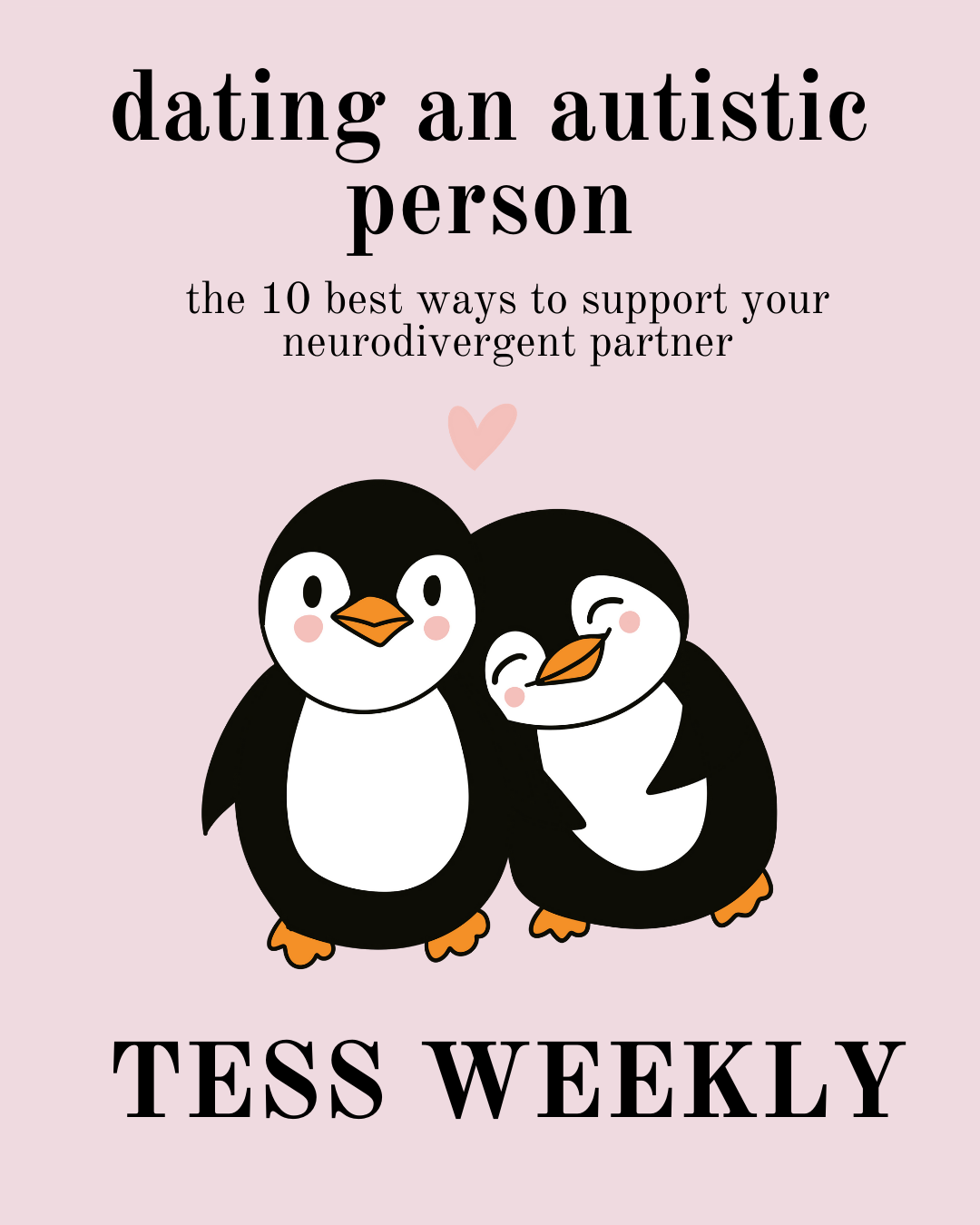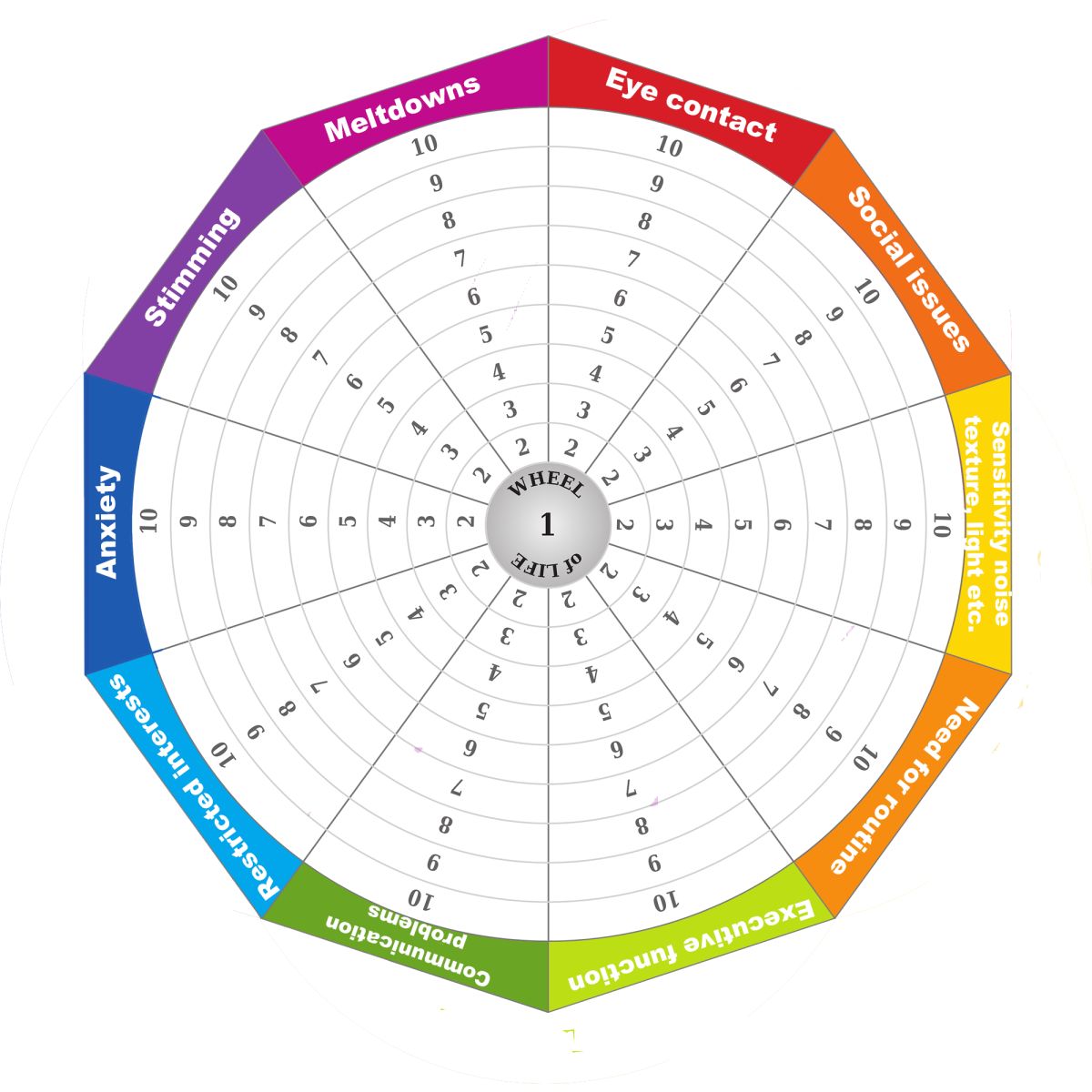Dating an autistic person – the 10 best ways to support your neurodivergent partner
On July 2nd, 2024, I was officially diagnosed with Autism Spectrum Disorder Level 1, so my partner, Alex, is dating an autistic person. Although I am not him, I have an understanding of the ways that he supports me that create a happy, stable environment for me and for us as a couple.
Yes, I wasn’t officially diagnosed until this year, however, I have always been aware of support needs that were often different from those around me. For example, I require more attention in overstimulating environments such as crowded spaces (like parties or family gatherings).
This is because I see Alex as a caretaker in a way. He supports me by understanding my needs in those situations, and he prepares by ensuring that I have the items I may need to take care of myself (such as my Loop earplugs or my Tangle).
Additionally, we communicate before these events about ways that I can tell him that I’m feeling overwhelmed without bringing everyone’s attention to it. For example, we often have a keyword or a gesture that means “I need to step out,” or “I would like to leave.”
If you’re dating an autistic person, below are 10 of the best ways to support your autistic (or otherwise neurodivergent) partner:

Understanding how their autism/neurodivergence impacts them
One of the most important things to consider when dating an autistic person is how their neurodivergence impacts them as an individual. Support needs, traits, and quirks can vary from one autistic person to another. One person may be nonverbal or struggle with communication. Others may excel in socialization, but struggle with sensory input such as bright lights and loud noises. Take a look at what an autism spectrum wheel looks like:
Each of these categories represents things that autistic people often struggle with. Each of the numbers represents a level at which we struggle with them. For example, I would say I fall at a 2 or 3 for communication problems, however, I fall at a 9 or 10 for anxiety and sensitivity to noise, texture, light, etc.
Take time to learn what your partner struggles with and what they excel at. Learn what their meltdowns look like and what triggers them. Study their nonverbal and verbal communication and do your best to understand how you can notice the signs that they are needing a little more support.
Communication
Communicating with your autistic partner is key, like it is in any relationship. However, communication can be more challenging with autistic people, especially during meltdowns or moments of distress. There are many ways that autistic people can communicate:
- verbally
- nonverbally
- with communication cards
- another form of conversation (such as sign language or utilizing technology)
Your partner may prefer to use one, two, or all of these methods depending on the situation and how they are feeling so make sure to check in with them about what would be best.
One thing that Alex does for me when I’m having a meltdown or I have a nonverbal moment: he gives me his hand, tells me to squeeze once for no, twice for yes, and he asks me only yes or no questions. For example, he often asks me questions like, “Do you want me here with you?,” “Do you want to be held or touched?,” and/or “Are you feeling overstimulated?”
Keeping close connection to other folks in their support system
Many times, autistic people have more than one person who they consider part of their support system. You (as their partner) are likely considered part of this system, but it may be helpful to connect with others who love and support your partner. Ensure that they are okay with you reaching out to these folks before you do, though. If you have questions or concerns about your partner, these folks are a good resource.

Noticing small changes/differences in behavior and mood
In Alex and I’s relationship, one of the key ways that Alex supports me is by being aware of changes in my behavior and mood. If he can sense that I’m getting irritated and overwhelmed, he will often take action and take over that task for me or help me as best as he can.
For many autistic people, stepping away from something we are intensely focused on is difficult for us, so I can often be stubborn about it. But he supports me by reminding me that I can come back to it later when I’m not feeling irritated and overwhelmed.
Do your best to make note of these changes when they happen and how they connect to your partner’s support needs.
Supporting seemingly small tasks
As you can see on the autism spectrum wheel, one of the categories is executive function. According to Gail Belsky of Understood.org,
Executive function is a set of mental skills. It includes working memory, flexible thinking, and self-control. We use these skills every day to learn, work, and manage daily life. Trouble with executive function can make it hard to focus, follow directions, and handle emotions, among other things.
Many autistic folks have challenges with executive function. One of the skills that can be a challenge is managing and prioritizing tasks. I (and other autistics) specifically struggle with seemingly small tasks such as household chores and practicing good hygiene.
I will often put off household chores until there is pressure to do them. For example, if I know that someone is coming over and I need to clean to appear neat and “put together,” then I feel an immense amount of pressure to do it right then and there. However, that pressure and feeling the need to clean everything at once leads to intense overwhelm, stress, and irritability.
Additionally, some autistic people are really awesome with habitual routines for tasks like chores and cleaning, but others of us are not. I personally don’t think brushing my teeth, washing my face, or doing the dishes will ever be habitual for me. Everything I do requires mental and physical effort, even if that thing will make me feel better and keep me healthy. Which is why completing those tasks are often so difficult for me.
Encouraging and supporting special interests
Special interests are intense and specific interests that autistic and otherwise neurodivergent people experience. Often, autistic people will gravitate towards conversations around their special interests and avoid conversations that don’t discuss them. We spend a lot of our time focused on our special interests and they can be extremely important to us.
If you’re dating an autistic person, try to encourage and support your partner’s special interests by asking them about it and asking to be included in their activities involving them. For example, one of my special interests is politics. I love talking about politics and having debate style conversations about controversial topics. Some of my favorite conversations are those focused around healthy debate.
Sometimes, on dates, Alex and I will pull up a list of controversial questions and discuss them on our date. This is extremely engaging and exciting for me.

Listening
Going off of the special interests topic – listen to your partner babble on about their interests and experiences! If you are dating an autistic person who loves to talk about their special interest, actively listen to what they’re saying and ask them questions. Conversations like this are often the highlight of my day, so it may be theirs as well!
Parallel playing
Dr. Liz Listens describes parallel play:
Parallel play doing individual hobbies alongside your partner where constant interaction or chatting is not required. Sometimes we want company, but we don’t have the social batteries to communicate. We simply want to exist with you, free from the expectations of entertaining you. This is a sign that we feel safe and securely attached to you. Being alone together is quality time to connect without words.
Alex and I love doing parallel play when I have my noise-cancelling headphones on (Bose QuietComfort – they are glorious), usually playing a game on the Nintendo Switch or reading a book, and Alex is playing games on the PC. We love this time together because we can sit near each other, do things we love together, and still respect one another’s needs and boundaries.
Giving deep pressure
Dating an autistic person can mean that they may LOVE being held, and sometimes being squeezed into oblivion, OR they may strongly dislike physical touch.
Communicate with your partner about what they like, and if they like deep pressure, give them a good squeeze once in a while. Alex will sometimes use his hands to squeeze up my arms when I’m feeling tension or built up energy in them. Other times, he will just pass me my weighted blanket and call it a day.
Autistic humans have different needs for different situations so be sure to connect with your partner before giving any squeezes or other physical touch.
Gifts
Fidget Toys…
Fidget toys, fidget toys, fidget toys. I LOVE fidget toys, and I know a lot of other autistic folks love them too – try getting your partner some. Ask what kinds help them the most and get them other similar ones. Right now, I really love my Tangle and my Speks.
Special Interest Items
If your partner has a special interest that you can get in trinket or stuffed animal form… get it. For example, if your partner loves penguins, get them lots of penguin items.
Regulation Items
Things like weighted blankets, noise cancelling headphones, and dimmable light bulbs are great regulation items – Anything that helps them to make their environment suit their needs. 🙂
If you have any questions about dating an autistic person that were not answered here, please feel free to reach out to me via my contact form and I’ll do my best to answer your question or connect you to a resource that will. 🙂
Tata lovelies!
